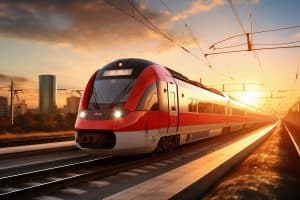Will Charlotte Get High-Speed Rail Lines, Too?
 In December 2023, the US Department of Transportation announced it will be granting $1 billion for a high-speed rail line from Raleigh to Richmond, along with seven separate $500,000 grants to investigate opening new lines for passenger trains.
In December 2023, the US Department of Transportation announced it will be granting $1 billion for a high-speed rail line from Raleigh to Richmond, along with seven separate $500,000 grants to investigate opening new lines for passenger trains.
Per Spectrum Local News, “The biggest grant announced last week for North Carolina is $1.09 billion to design and build the first segment of a high speed rail line between Raleigh and Richmond. Called the S-Line, the new 162-mile passenger route has been in the works for about two decades.”
“This is great news and underscores our successful efforts to build a transportation system that works for all North Carolinians,” Governor Roy Moore said in a statement. “The S-Line is a critical project that will provide fast, frequent and reliable service connecting North Carolina, Virginia and the Northeast.”
The smaller grants will go into expanding rail service in North Carolina, including reviving the passenger rail service from Raleigh to Wilmington. These improvements also include investigating the following routes here in the Charlotte area:
- Charlotte to Kings Mountain Corridor: “The proposed corridor would connect Kings Mountain, North Carolina to Charlotte, North Carolina. The proposed corridor would provide new service on existing alignment with capacity improvements west of the Charlotte Gateway Station and likely extending service to Kings Mountain, in addition to track, crossover, or signal improvements.”
- Charlotte to Washington, D.C., Corridor: “The proposed corridor would provide improvements to the existing state-supported Carolinian service between Charlotte, N.C. and Washington, D.C. (with existing service continuing north to New York, N.Y.) by improving/adding services in Greensboro, Winston-Salem, High Point, Raleigh, Durham, Salisbury, and Burlington, N.C. and Petersburg, Richmond, Fredericksburg and Alexandria, Virginia by addressing infrastructure capacity constraints. Improvements include constructing/rehabilitating a partially abandoned alignment between Raleigh, N.C. and Petersburg, VA that is more direct than the existing routing through Rocky Mount, N.C., potentially shaving more than an hour off the end-to-end travel time.”
- Charlotte to Atlanta, Georgia, Corridor: “The proposed corridor would provide new service on a new high speed rail alignment between Charlotte, N.C. and Atlanta, GA, with potential intermediate stops including Greenville-Spartanburg International Airport in South Carolina and Augusta and Athens, GA, then serving a downtown Atlanta station and terminating at Atlanta’s Hartsfield-Jackson International Airport, the world’s busiest airport.”
Why new rail lines are a good thing
Did you know that Charlotte ranks 35th in the nation and 318th in the world for the worst traffic congestion? These new rail routes can help decrease congestion by taking people out of their cars and putting them on trains, which is good news all around. In 2022, drivers lost an average of 25 hours to traffic congestion, contributing to over $400 in wasted fuel. Further, the more people on the road, the higher the chance of being involved in a car accident.
Leigh Altman, Mecklenburg County Commissioner At-Large who sits on the Metropolitan Transit Commission, notes, “that means seriously committing to a plan for mass transit that supports a community of over 1 million people and growing.” New and updated rail lines can help contribute to this plan.
How increased rail lines can ease traffic congestion in Charlotte
The addition or expansion of rail lines in Charlotte can contribute to easing traffic congestion in several ways:
- Alternative transportation options. Increased rail lines provide an alternative mode of transportation for residents and commuters, offering them a choice other than relying solely on private vehicles. This can help reduce the number of cars on the road during peak hours.
- Reduced reliance on individual cars. A well-developed rail system encourages people to use public transportation instead of driving individually. This shift can lead to a decrease in the number of vehicles on the road, particularly during rush hour.
- Efficient commuting. Rail transit systems often operate on dedicated tracks, allowing for more predictable and efficient commuting times. This can reduce the uncertainty associated with traffic congestion on roadways.
- Connectivity across the city. An expanded rail network can connect different neighborhoods and business districts in Charlotte. This connectivity can make it more convenient for people to use public transportation for their daily commutes or recreational activities.
- Transit-oriented development. Rail lines can stimulate transit-oriented development, encouraging businesses and residential complexes to be located near transit stations. This, in turn, can reduce the need for long commutes and alleviate traffic congestion.
- Environmental benefits. Public transportation, including rail transit, generally has lower carbon emissions per passenger compared to individual cars. Encouraging the use of public transit can contribute to environmental sustainability and air quality improvements.
- Parking demand reduction. A robust rail system can reduce the demand for parking in congested areas, as people opt for public transportation instead of driving to their destinations. This can free up valuable urban space and reduce traffic in search of parking.
- Economic productivity. Reduced traffic congestion can lead to more reliable and timely transportation of goods and people, benefiting businesses and contributing to increased economic productivity here in Charlotte.
Were you injured in a car accident caused by someone else’s negligence on the congested roads of Charlotte? The car accident attorneys at Price, Petho & Associates are here to help. We work to ensure you secure compensation for all your injuries and losses, pinpointing all liable parties and holding them accountable for your damages. To schedule a free consultation, please call our office or complete our contact form today. We have offices in Charlotte, Rockingham, and Rutherfordton for your convenience.

Attorney Doug Petho is the owner and founder of Price, Petho & Associates. His primary focus is the litigation of plaintiff’s personal injury suits, and he has successfully tried hundreds of cases to jury verdict involving car accidents, trucking accidents, pedestrian accidents, slip and fall accidents, and work-related accidents. Contact his office in Charlotte today.
